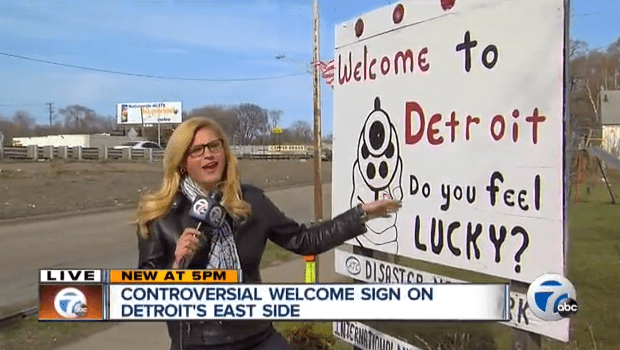The Minnesota legislature is working on a bill which will, among other things, eliminate the “duty to retreat” before using deadly force in self-defense. Naturally this has the usual suspects all riled up, calling it a “Shoot First” bill and so forth. What is disheartening, though, is when Police Chiefs make the same “blood in the streets,” “people getting away with murder” claims. Specifically Dave Kolb, Chief of Police in Champlin and, according to the newspaper, co-chair of the Minnesota Chiefs of Police Association Legislative Committee in his letter to the editor which appeared in Wednesday’s Star and Sickle Tribune . . .
I am a member of the NRA, and I support the right of citizens to defend themselves. I have also been a police officer for 23 years,
Establishing his credentials, good. Saying he supports self-defense, good. Then things go downhill from there.
and I have discussed the proposed Castle Doctrine law with dozens of working cops. I believe that it creates a loophole defense for murder.
Hey Chief, that “loophole” is called a presumption of innocence and it’s been around in one form or another since Roman times. Unfortunately the Chief, like so many officials in so many jurisdictions, has gotten used to requiring that the defendant prove he acted in self-defense. He evidently thinks that’s the way things are supposed to be. It isn’t. It is supposed to be up to the prosecution to prove the elements of the crime beyond a reasonable doubt.
With a codified duty to retreat before using deadly force, however, when it comes to self-defense shootings prosecutors just prove that the defendant pulled the trigger and state that retreat was possible. This leaves it up to the defense to show that the shooter could not retreat safely. No wonder cops and prosecutors hate these new laws. But back to the Chief who provides us with a charming anecdote of boyhood innocence:
When I was 10, I lived in south Minneapolis. Across the alley lived Mr. Cunningham, who had a wonderful apple tree in his back yard. More than once, I snuck in and stole an apple. Mr. Cunningham was a nice and peaceful man, but he certainly didn’t like having his apples stolen. I have little sympathy for thieves, even 10-year-old apple thieves, but if he had shot and killed me, it would have been cold-blooded murder.
Yes it would have, but the Chief seems to think all that will change with castle doctrine in place.
Here’s my problem with the Castle Doctrine bill. I entered Mr. Cunningham’s property by “stealth” to steal an apple. Article 3, subdivision 4 of the bill states that if a person enters property illegally by stealth, the property owner can “presuppose” that there exists an imminent threat of harm or death and employ deadly force.
I hesitate to say use the L word, but he’s either a liar or he is so ignorant and incompetent as to call into question his fitness as a street cop, let alone the job of Chief. A minor point, just for starters – nowhere in subdivision 4 of the bill does the word presuppose appear. The word it uses is presumption as in:
Subd. 4. Presumptions.
(a) An individual using deadly force is presumed to possess a reasonable belief that there exists an imminent threat of substantial bodily harm, great bodily harm, or death to the individual or another person, if the individual knows or has reason to know that:
(1) the person against whom the defensive action is being taken is unlawfully entering or attempting to enter by force or by stealth
But the ignorant, incompetent part is where the Chief left out that whole bit about being presumed to possess reasonable belief which is kind of an important part of the statute. Being presumed to have such a belief is like being presumed innocent. It doesn’t mean you have a get out of jail free card for whatever you do, it means that the police have to have more evidence than the simple fact of your shooting someone before they can arrest you.
The Chief also leaves out a bunch more when he continues:
Subdivision 5 states that such a person is “immune from any criminal prosecution for that act.”
So according to the Chief’s interpretation of the new law, all I have to do in order to murder my brother-in-law is to wait until he’s on my property and then shoot him. When the cops show up I just say he was attempting to enter by stealth and I will be immune from prosecution. But that’s a load of codswallop. What Subdivision 5 actually says is:
Subd. 5. Criminal investigation; immunity from prosecution.
(a) An individual who uses force, including deadly force, according to this section or as otherwise provided by law in defense of the individual, the individual’s dwelling, or another individual is justified in using such force and is immune from any criminal prosecution for that act. [emphasis added]
So if I shoot a 10-year-old apple thief for sneaking on my property I’ll only be immune from prosecution if I can convince the police that my reasonable belief of the imminent threat was, well, reasonable. Here’s part (b) of Section 5:
(b) A law enforcement agency may arrest an individual using force under circumstances described in this section only after considering any claims or circumstances supporting self-defense or lawful defense of another individual.
That means I can’t be arrested for shooting someone in self-defense just because I shot someone; the police have to take in the totality of the circumstances.
Now the Chief does say:
If the Castle Doctrine becomes law, I don’t expect apple thieves to be shot by thousands of responsible gun owners across our state,
for which I, as a responsible Minnesota gun owner thank him, but then he can’t leave well enough alone:
but I do expect that occasionally a crazy, violent criminal will use this loophole as a defense for murder.
I guess the Chief is unimpressed by Blackstone’s ratio, the classic ‘better ten guilty go free than one innocent suffer.’ But setting that aside let me ask the Chief one thing: would you do away with the self-defense justification altogether since crazy, violent criminals often try to use that “loophole” as a defense for murder, too?
The Chief finishes confirming everyone’s suspicions up by saying:
Every three months I receive my NRA magazine in the mail, and I dutifully read the section about ordinary citizens who defend themselves with firearms. I appreciate that my NRA publishes these examples. As a cop, I always read them with our current law in mind. I have never read such an example that would not be allowed under our current law.
Again, however, he is leaving important things out. Even if your DGU would be allowed under current law, with a “duty to retreat” before you can use deadly force outside your home, you are almost certain to get arrested for the shooting.
Next you get to experience the fun of the “ride downtown”, getting processed into jail, making the $3,000 phone call to your lawyer (although that was 10 years ago, rates have probably gone up in the meantime).
Then you can look forward to praying that your lawyer can get you out or at least released on your own recognizance so you don’t have to come up with bail. Oh, and don’t forget the part where you have to explain to your boss exactly why you were late for work.
There’s one more thing the Chief didn’t mention: if you are an OFWG and your “victim” is of a different ethnicity you had better be devoutly praying that the D.A. isn’t planning a “tough on crime” run for Senate or Governor in the near future.





J.H.C., what a weak argument! This just shows that anyone can “what if” any situation into ANYTHING! There is a huge difference between defending self/family/property and cold-blooded murder. If the good Chief can’t draw a distinction between the two then perhaps he should find another line of work?
Just one minor nitpick.
If a DGU takes place and criminal charges are filed against the victim of the dead felons attack, he or she will be using an “Affirmative Defense” to cite that such actions are proper under the laws of self defense.An affirmative defense turns around the rules of law in this specific instance in that if one plead not guilty to shooting the scumbag the state would need to prove beyond a reasonable doubt that indeed the intended victim pulled the trigger.
An affirmative defense boldly states that “I pulled the trigger Your Honor because this guy was trying to kill me.So I should thus not be punished for killing this man.” Now the burden of proof shifts to the DEFENDANT to prove beyond a reasonable doubt that what he did in pulling the trigger was proper and right under the law.
As far as the chief’s reaction to the law, it is to be expected. The modern police superintendent’s job isn’t to stop crime, it is to make their political overlords look tough on the same. Actually being tough on crime requires the police to step aside and to allow the citizen the right to defend themselves, which makes it tough for a sitting politician to take credit for a ‘safer community’.
I’m skeptical of that. Suppose I’m involved in a DGU with no witnesses, and no evidence except (A) my testimony, (B) a baseball bat in the dead guy’s hand, and (C) a ballistics report matching my gun to the bullet in the dead guy’s head. You’re saying that before the jury begins their deliberations, the judge will turn to them and say, “You must all understand that if you do not think that Mr. NR has proved beyond a reasonable doubt that he acted in self-defense, then it is your duty to find him guilty”.
I’m not lawyer, but I’m pretty sure it doesn’t work like that.
The core point that I make, based on the actual court events of one Massad Ayoob, is that the principle of “guilty until proven innocent” does not apply when you admit that you shot someone in self defense. There’s no reasonable doubt for the state to prove that you did it, because you SAID you did it. Ballistic reports and forensic evidence is pointless to prove guilt because in effect you are confessing you did it.
Using NR’s example, the District Attorney’s goal in charging a crime of manslaughter is not to prove that Mr. NR has shot Edward Scumbag in his home, but that in doing so NR committed a crime. NR’s argument is that the scumbag came into the home with a baseball bat and intent to physically assault him, and when Mr. Scumbag tried to attack NR he shot the late Scumbag in the chest with Gun X at Z number of times. The DA then says NR was scared for his life and negligently shot the scumbag with Gun X , thus it was not self defense but unintentional homicide ( thus manslaughter), and NR says that Gun X is used by Y number of police agencies , and back and forth it goes.
This process is partly why large law enforcement agencies use sidearms classified as double action only , as such a pistol eliminates an argument by the State that the lawman or citizen shot the scumbag by accident.
Do not take this as a slam on anyone, but situations like the above are why legal education is more or less mandatory for gun owners these days. Much like educating yourself about auto insurance is wise if you’re buying a car, taking an hour or two to research some case history on self defense would be a wise investment of time for all gun owners. Even the Law Enforcement community is not immune from a District Attorney interested in a high profile conviction, which is a nightmare that can happen to anyone who has to draw down in self defense.
There would be two different findings that the jury would be asked to make. First, the prosecutor will have the burden to prove to the jury that the defendant did, in fact, shoot the person, and intended to shoot them. That would fulfill the necessary elements to prove murder. So if the trial were to end there, and if the jury agreed with the prosecutor’s case, then the defendant would be found guilty of murder.
But the trial doesn’t end there. The defendant then gets to assert the affirmative defense of “self defense”. The defendant normally has the burden to prove this. Self defense has its own elements that the defendant would normally have to establish (such as a reasonable belief that their life was in danger), and if the jury agrees that the defendant acted in self defense, then, even though he committed murder, the successful affirmative defense will prevent him from being convicted of murder. (I say “normally” in this paragraph, because the castle doctrine law changes who has to prove what–keep reading….)
In practice, the prosecutor’s case would be easy, given the example of the home invasion in this article. The homeowner admits that they did pull the trigger, and that they meant to shoot at the defendant. (This case maybe he could instead argue that, “I didn’t think I would hit him, therefore I didn’t intend to hit him”, but that complication is beside the point. In most home invasion situations, the defendant homeowner intends to shoot the home invader.)
So the prosecutor has an easy time proving murder, and the entire trial rests on the question of whether the defendant acted in self defense.
I am not an expert on this castle doctrine law, but it sounds like the law says if a person is entering your property by force or stealth, then there is a presumption that the homeowner reasonably believes they are in imminent danger.
That presumption is the key. Instead of the burden of proof being on the homeowner to prove they had a reasonable fear for their life (which is necessary for them to assert self defense as an affirmative defense), the law would (in cases where someone entered by force or stealth) remove their burden to prove they had reasonable fear for their life. It would be presumed.
That said, the prosecutor could still rebut that presumption. They could, for example, put on evidence that the invader was a small child climbing an apple tree, and the jury could then overturn the presumption of reasonable belief that the homeowner’s life was in danger. In short, the jury could say, “We know the law says you are presumed to have believed you were in danger, but the facts don’t support that. The presumption is therefore rebutted, and we therefore don’t believe you acted in self defense.”
At that point, the defendant would have failed in their claim to self defense. And they go to jail.
Wow. I felt I had a pretty solid grasp on how Castle Doctrine works, but trying to explain it to someone else was a different matter. Until now. Excellent clarification.
An affirmative defense turns around the rules of law
ST, the party asserting an affirmative defense must prove it.
Can you clarify that a bit for me, Ralph? My understanding was that in a he said/she said situation, with no way to prove anything, nobody goes to jail. Are you saying that this doesn’t apply when it comes to self-defense?
NR, see my overly long post above. A prosecutor could still charge you with the crime, even if it’s just “he said/she said”. The jury would have to decide whom to believe. They are the “finder of fact”. If the two sides disagree on the facts, the jury is the final arbiter. That is their primary role. If there is no disagreement of fact, then no jury is needed. A judge decides the case as a matter of law.
The question of whether someone had a reasonable fear for their life is a question of fact. The defendant says they did have that fear. The prosecutor says they did not. Each presents evidence to support their case. The jury decides.
I read extensively before I applied for a LTCF, and thought I knew the score. Now I’m hearing that if I defend myself outside my home and there are no witnesses, I should expect to go to jail, because I have no way to prove anything and unless I prove myself innocent, I’m guilty. I’d better hope the other guy has a record…
Why aren’t we angry about this?
More than once, I snuck in and stole an apple. Mr. Cunningham was a nice and peaceful man, but he certainly didn’t like having his apples stolen.
So we have a criminal for the Chief of Police? Charming.
I can tell you what both of my Grandfathers would have done to that little twerp…and it would not be PC.
an UNREPENTENT Thief… Yes we do!!
Ya’ll must understand why this former Cop is acting this way and saying such things… He isn’t a Cop any more! He is a Political Appointee to the position ‘Chief of Police’ and any former service as a cop is now more of an impediment than a help.
Affirmative Defense? 2 words… ‘Trevon Martin’
Many a good cop starts life as a thieving repeat offender, I suppose. Nonetheless:
“but I do expect that occasionally a crazy, violent criminal will use this loophole as a defense for murder.” –yep, so many crazy, violent criminals own homes and have intruders bearing indicia of intent to harm them….
Too funny for words. When I was a kid growing up in The Bronx, cops were colloquially referred to as “apple stealers” because of their habit of nicking fresh fruit from fruit-and-vegetable stands without paying. I guess that Chief Kolb was born to be a cop.
This guy is a police chief, not a cop. The cop is a guy who wears a gun and a badge, works the streets, deals with actual people face to face, and is exposed to real risk in the process. A police chief sits in air conditioned offices all day, drinks coffee the exact way he likes it, and tells stories about “back in the day.” He promoted because he’s good at taking tests, gives good interviews, etc.
Too bad he lost his common sense along the way. Probably time to clean out the ‘ol coffee mug. Thankfully I’m not one of his subordinates, so I can tell it like it is.
Meh… We’re used to it here in Ohio. Chiefs/ Commisioners/ Superintendents/ FOP officials/ whatevers are NOT cops. I think it’d even be a stretch to call them “Law Enforcement” which many an anti-gun article does. They’re politicians and they act accordingly.
I, being a responsible & law abiding CCW permit holder in this great state, am ashamed that someone like this chief is being portrayed as a representative of Minnesota. However, despite the chief who is merely trustworthy enough to mow my lawn at most (don’t worry, I don’t own an apple tree), I am quite proud to say that the senator representing my district is actually a democrat, supported this bill, and even responded to an email sent by me two days before the vote providing news of the bill’s passage along with his support! All is not lost, there is hope for this state after all. I just hope that governor spoon-fed signs it into law.
“It is supposed to be up to the prosecution to prove the elements of the crime beyond a reasonable doubt.”
Except that’s not what happens. I have a friend who’s currently being charged with a crime they didn’t commit (actually, the crime itself never existed – it’s a pure fabrication) by a crooked cop, and I don’t doubt that my friend will be convicted. The most infuriating part? Another detective I know is well aware of my friends innocence but is refusing to do anything because “Well, the other detective might get upset”. Great to know our police are more than happy to destroy an innocent persons life just to avoid actually having some balls.
Just glad I live in Texas…we don’t have to put up with that BS.
Kolb’s claim was repeated in the Star Tribune article that reported senate passage of the bill. This is what I posted in the comment section:
It’s pretty clear which side has the better argument when the Strib has to turn to Champlin Police chief David Kolb to invent some sort of negative side to this law. Yeah right, kids stealing apples will get shot. I’ve sat on a jury in an assault case — nobody could get away with that under the proposed law. The standard is still would a reasonable person fear for her life. I would love to see the police be so afraid they would stop doing their no-knock raids. Ask Lloyd Smalley and Lillian Weiss about that. Oh, sorry, you can’t. They’re dead, because the Minneapolis police burned them alive by targeting the wrong house. Actually there is nothing in this bill to increase danger to law enforcement, but if they want to make the same stupid hysterical objections again, just like they did with concealed carry, then its time for a little pushback.
Can I just have a readers digest version of the Castle Doctrine bill?
I am not an expert on Castle Doctrine law, but this is my personal take:
Before Castle Doctrine law (based on fact pattern in the article, about the home invasion):
– Prosecutor has the burden to prove all the elements of murder (i.e., that the defendant is the person who killed the home invader, and that they intended to kill them).
– If the prosecutor proves these elements to the jury, then the defendant can assert “self defense”. Defendant has burden to prove the elements of self defense (i.e., that they had a reasonable belief their life was in danger).
After Castle Doctrine law:
– Prosecutor still has the same burden to prove murder.
– BUT, if the invader entered by force or stealth (according to the Castle Doctrine law), then the defendant is presumed to have had reasonable fear for their life. So instead of the defendant having the burden to prove they feared for their life (in order to assert self defense), the prosecutor has to prove that they did not. The presumption that the defendant had this reasonable fear means the defendant no longer has to prove this element of self defense. It is presumed. But this presumption is rebuttable. The burden of proof has been shifted to the prosecutor. The prosecutor can present facts to rebut this presumption. The jury decides if the prosecutor succeeded.
There’s a longer post above that goes into more detail.
Comments are closed.